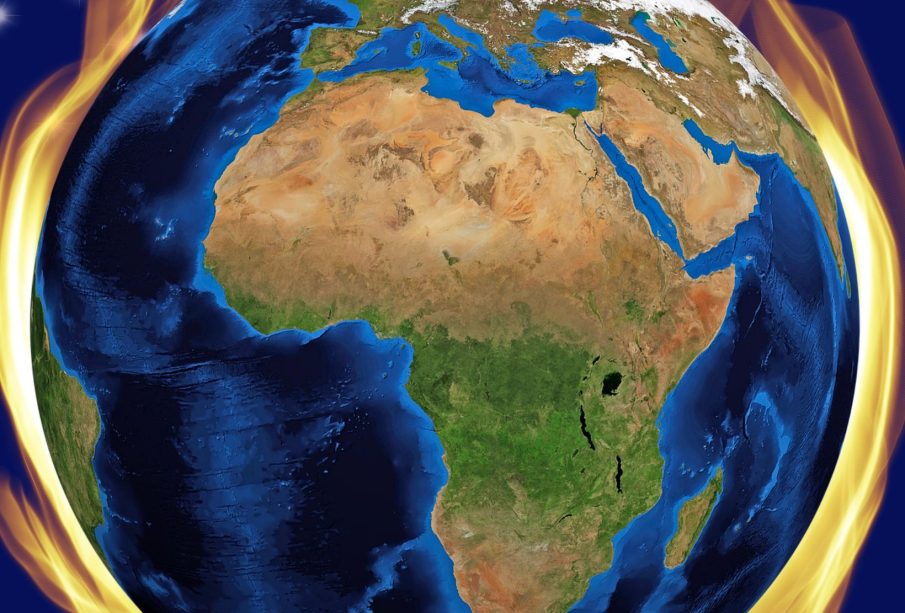Earth warming will have dire effects on Sask.

1.5 degree Celsius increase on Earth, and it’s only heating up
According to the United Nations (UN), the Earth is very likely to warm above the previous target of 1.5 degrees Celsius.
It was only in October of 2018 that a special report by the UN’s International Panel on Climate Change called on countries to take immediate action to keep global warming below 1.5C. At that time, the report stated that global warming was likely to cross the 1.5C threshold if emission “continues to increase at the current rate.”
By October of 2022, the UN Environmental Programme declared that there was “no credible pathway to 1.5C in place.” An increase above 1.5C breaks legally-binding promises by world leaders in the Paris Agreement, which was signed in 2015.
Cameron Esler, a member of the Canadian environmental organization The David Suzuki Foundation, said that crossing the 1.5C threshold shows “Our governments aren’t taking the necessary action.” Despite this, Esler believes pathways to keep warming below 1.5C still exist, “We just need to start following them.”
The Regina Energy Transition Campus Club (RETCC) is a group here at the University of Regina which advocates for a sustainable transition in Regina, and also say they still “hold out hope for keeping temperatures below 1.5 degrees.”
According to the World Emissions Clock, a publicly available tracker of global greenhouse gas emissions set up by the UN, even if Canada fulfills all of its current promises it will not meet its share of greenhouse gas reduction to keep warming below 1.5C. When ranked per capita, Canada is in the top few of the largest emitters in the world.
On a smaller scale, some other governmental agencies in Canada have been trying to do their part to transition to a sustainable economy. Esler pointed to the City of Regina’s Energy and Sustainability Framework as an example, though he warned that it needs to be “funded and implemented now.”
When asked about government policy, RETCC said the climate crisis is “rooted in systemic racial and social inequities.” So, RETCC advocates for “all decision-making levels” to adopt an “intersectional climate justice lens.”
On an international scale, some progress is being made as well. In February of this year, the Caribbean saw the first implementation of a new extreme weather warning program called Early Warning For All. The initiative was promised at November’s COP27, an UN-led climate change meeting between world leaders, as an adaptation to a changing climate which involves increased frequency and intensity of extreme weather events.
Dr. Amber Fletcher, an associate professor in the department of sociology & social studies at the University of Regina, said “Hazards tend to reveal the stark inequalities in our society.” One example she provided is “people with fewer financial resources [class inequality] have a more difficult time recovering from a flood.”
According to estimates from the World Emissions Clock, the world is estimated to release over 58 gigatonnes of carbon dioxide equivalent greenhouse gas emissions. This is 11.5 gigatonnes above what we should be releasing this year if we want to stay below 1.5C of warming.
Esler said that, for Saskatchewan, climate change means “more seasonal flooding, more seasonal drought, and more extreme weather events.”
The RETCC called attention to how climate change will have inequitable impacts on Saskatchewan residents, such as “rural Indigenous communities” which face the “forefront” of climate change. In urban areas, “economic, social, and health disparities will also be exacerbated.”
Dr. Fletcher agrees that “culture and colonialism affect people’s experience of a disaster.” Fletcher points to the example of increased wildfires, saying they “disproportionately affect Indigenous communities here in Saskatchewan.”
RETCC also pointed to the emotional impact on some people who “feel overwhelmed” in the face of a changing climate. For those feeling overwhelmed, RETCC says it is important to have a “strong network and community” that can help people feel “engaged.”










